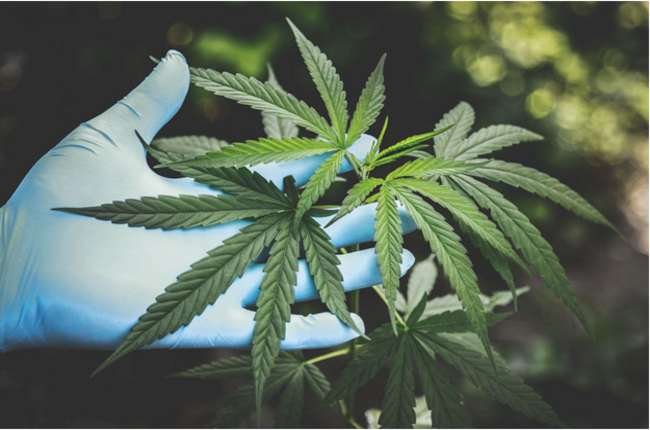What is addiction? What is meant by Medical Detox? There are more viewpoints on it that you would think. Many people consider it evidence of impatience. They think of it as a bad behavior that can only be changed by individual effort. Others consider it a spiritual affliction that is cured by no less than a miracle.
Here is the problem with most views on addiction: They make addiction exclusive. Only certain people—impatient people, stupid people, godless people—can get addicted. And only certain other people—patient people, smart people, pious people—can be treated.
This idea is obviously pathological in nature. Can impatience, stupidity, and hubris lead to addiction? Yes, though some of those qualities are more likely to result in addiction that others.
But the problem is that the average person understands addiction through the lens of their values. Patience, intelligence, or piety will be important to them. And therefore, they will imagine that it is the deciding factor between their circumstances and the circumstances of others.
Science has a different view on it. Addiction is a disease. It is a disease that you can catch when you put the wrong substances in your body. It doesn’t matter if you are a chronic consumer of those substances—anyone can get addicted. And anyone can recover.
What is Medical Detox?
The first step in getting a science-based treatment for drug or alcohol addiction is called “medical detox”. The better way of describing it might be “medically assisted detox” however.
Medical detox is the process of getting the damage dealt by the addiction out of your system. You will notice that we did not call it “the process of getting drugs out of your system”.
That is because a lot more is going on in your body during addiction than just having bad chemicals in your veins, lungs, or stomach. The normal functions of your body are disrupted, and to get them back in working order is a process far more complex than just quitting your vice.
The human body is incredibly complex. It is so complex that an addiction to the same drug will never affect two people the same way. That is why medical detox is so important: Part of the process is figuring out what exactly the damage is, as every addiction is different.
What Does Medical Detox Include?
You can think of medical detox occurring in three steps: Medication, nutrition, and therapy.
Fortunately, each individual step is rather intuitive. Everyone knows that they take medicine when they are sick, that what they put in their bodies matters, and that therapy helps them process their emotions. But just because it’s intuitive doesn’t mean it’s easy.
Medication
What medication a person gets is highly dependent on the addiction. Methadone is prescribed to heroin addicts, acamprosate for alcoholism, and so on. The specific medication is not as important as the process behind the medication. Doctors are careful to make sure that each patient undergoing medical detox stays on top of taking their medication.
Nutrition
One of the most easily overlooked effects of addiction is how it impacts your body’s ability to process food. Digestion is far less efficient in addicts than for sober people. That means nutrition comes in two parts: Eating healthy and taking supplements to help.
This makes sense when you think about it. You can’t exactly diet your way out of addiction. Similarly, exercise will sometimes be “prescribed” during medical detox. It is not as important as taking medication or nutritional supplements, but it can help your body endure withdrawal.
Therapy
Taking medication, eating healthy, exercising, and taking supplements is a lot to ask of a person. It is so many small tasks that even someone who knows and understands the value of each of them might miss them. An honest person can still relapse and feel terrible about it.
As Ascendant New York says, the only way to deal with that kind of pressure is therapy. Not everyone likes it. In fact, it is going to be painful for most addicts. But it is worth it.
Choosing a Medical Detox Facility
So, now you know the steps involved in medical detox. But there are a lot of other factors involved in medical detox outside the actual process of medically detoxing.
We are going to briefly go over some of the things you should think about when you are looking for a medical detox facility near you. Finding the right detox facility can make all the difference.
Type of Addiction Treatment
Simply put, some medical detox facilities will not be able to treat your addiction. This is pretty easy to confirm, however. Just call them and ask if they treat your type of addiction.
Inpatient or Outpatient
If you have a particularly intense addiction, then your doctor might recommend inpatient treatment. That means you live at the detox facility. This is ultimately up to you, but some people actively seek out inpatient treatment, while others want exclusively outpatient treatment.
Type of Therapy
There are more types of therapy than you might think. The most common two types are group or solo therapy. But you can even get anonymous therapy, both in person and online.
Closeness to Work or Home
Getting addiction treated does not mean life stands still for you. Many people have to work while undergoing treatment, meaning you might have to consider how close the facility is to your job.
Conclusion
In the past, addiction was treated as an unknowable phantom that struck down tortured souls. We live in a more enlightened age now. The stigma still exists in society, but there is a whole field of medicine dedicated to helping addicts overcome their addictions.
Addiction can seem insurmountable. But when you get sick, it can seem impossible to remember a time when you weren’t sick. Recovery is still possible. Hopelessness is a trick of the mind. All it takes is the right application of the right science.




